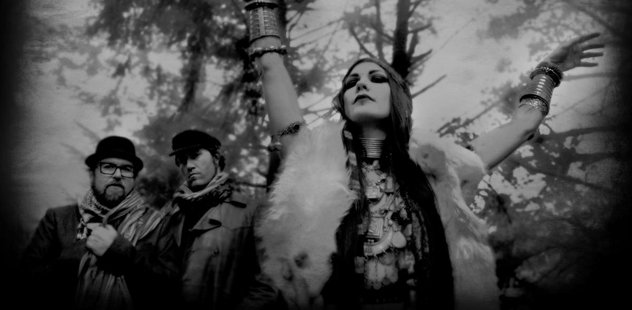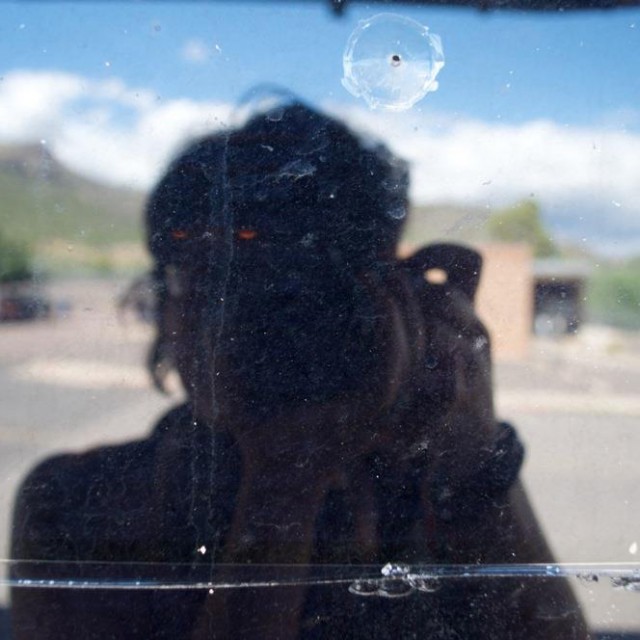
Beats Antique plunges into a hero’s journey during their spring tour
To anyone who has a soft spot for mythology, Joseph Campbell’s monomyth (aka hero’s journey), belly dancing, electronic music, vaudeville or extravagant performance art—check out Beats Antique’s latest album. Better yet, go see them when they perform at Ace of Spades in April for their spring tour.
For those unfamiliar, Beats Antique is a sort of electro, experimental, tribal dance act founded within the creative core of the Bay Area. For the last seven years, the band has continued to birth explosive, beat-heavy albums, each intended to musically accompany the dance performances of Zoe Jakes, the band’s arresting frontwoman. If you’ve ever watched tribal fusion belly dancing, you might have watched it performed to the sounds of Beats Antique.
Now, Beats Antique is bringing Campbell’s epic monomyth to life via two albums. A Thousand Faces, Act I, was just released in fall 2013. A Thousand Faces, Act II will be available by the time their tour starts in late March.
The band used Campbell’s myth map as their guide. As far as conceptualizing the albums goes, “things just made sense,” Jakes says.
And, believe it or not, creating and producing a two-album interpretation of the hero’s journey—and choreographing an entire live performance to go with it—took the band just eight months.
Perhaps that isn’t all that surprising. David Satori, who plays anything from guitar and violin to the saz (a Turkish instrument), graduated from the California Institute of the Arts with a degree in music performance and composition. Tommy Cappel, who plays keys, bass and drums in the band, graduated from the Berklee College of Music in Boston with a degree in studio drumming. Jakes has been dancing since her mom forced her to take ballet at age 3, and picked up tribal fusion belly dancing in 2000. In addition to dancing, she plays the drums and is heavily involved in producing and arranging the band’s music. Performing is what these three know.
The band also pulled several musicians to collaborate with them on the first act, like Indian musician Alam Khan; Bay Area singer/songwriter Lynx; SORNE, of Austin, Texas; Micha and Leighton, of the Yard Dogs Roadshow; and Les Claypool of the Bay Area rock band Primus.
It was a collaborative effort with friends, really.
“We wanted to tip our hat to all those bands,” Satori says.
The band created each song to represent various parts of the hero’s journey.
For instance, “The underworld was very Balinese; it was the perfect thing for bringing a character into the underworld,” Jakes says.
She is referring to the track “Charon’s Crossing,” based on the Greek mythological character Charon. If you ever take a look at Michelangelo’s depiction of Charon in his fresco (mural) at the Sistine Chapel, you will see an intimidating character with a body builder’s physique, bulging eyes, clawed toes, pointy ears and a tuft of gray hair on his head. He is the boatman who ferries souls from the living world to the underworld, for the price of a coin.
“The imagery, and where we were going with it, is: ‘Charon’s Crossing’ is about the shamans asking the gods to take the character to the underworld,” Jakes explains. “This is what ‘Charon’s Crossing’ represents, for us, in the show.”
Though you wouldn’t expect it from a boat ride to Hades, this is arguably the most magical and uplifting song on the record. The song was composed using MIDI, and digitally recreating a gamelan—a set of inseparable Indonesian musical instruments (usually Balinese or Javanese) like xylophones, drums, gongs, chimes, bamboo flutes, metallophones and bowed instruments. It would have been impossible to acquire all these instruments, so the band downloaded samples of each instrument from a sample bank.
“We were fortunate enough to download really good samples,” Satori explains. “In order to get those instruments, it’s a really big production, and they’re really hard to find.”
“We used the traditional orchestra ensemble and the instrumentation of the orchestra, which is up to 40 people,” he adds.
Satori was first introduced to the gamelan-style while he was studying at the arts institute.
Just a song after “Charon’s Crossing” is “Doors of Destiny,” which feels a lot like walking into a nightmarish game show on acid, with a Vaudeville flavor. Of course, the effect is intentional. The game show element represents the multiple tests of the hero’s journey. It’s meant to feel chaotic, Satori says. Think Tweedle Dee, Tweedle Dum.
“I look at that as sort of where realities are all upside down,” he explains. “Everything’s sort of a game.”
“For the game show, we decided we wanted something that was really hook-y, that had that sort of cheesy circus quality to it,” Jakes adds, “so it made sense that we would bring in some of the elements of that Vaudeville sound.”
For this song, Jakes came up with the choreography before the music was ever made.
Look up the “Doors of Destiny” on YouTube, and you can get an idea of how this song might be executed live. After some theatrics, a young girl gets pulled onto the stage from the front of the crowd, where she remains, side-by-side with Jakes. A massive blow-up creature appears from behind, enveloping the two into chaos.
Live performances are always a unique experience, Jakes says. Ninety percent of the time, the band pulls someone onstage.
“Once in a while, someone is not happy about it,” she adds.
Act I is 10 songs that span just under 50 minutes. It ends right at the middle of the hero’s journey, in the abyss. Here the hero faces his or her darkest fear and greatest challenge.
Their spring tour will cover the entire journey: both acts one and two.
Beats Antique started out as a recording project in 2007. They had no intentions of becoming a full-fledged touring band. Fate, however, had another plan.
The three met in the Bay Area. Jakes and Satori became a couple, and eventually married. Jakes and Cappel were both in the Extra Action Marching Band, which Jakes sums up as crazy performance art, and Yard Dogs Road Show, a troupe of Vaudeville performers.
Meanwhile, Cappel had spent years messing around with electronic and hip-hop music.
“I was just into making beats and having fun,” Cappel recalls. “I didn’t have a goal.”
Eventually, the three had it in their minds to create a belly-dancing album meshing electronic and tribal music. Everything spiraled from there.
“It’s turned into a crazy, wild beast no one can tame,” Satori says.
Catch the spectacle that is Beats Antique live at Ace of Spades in Sacramento on April 2, 2014. The show starts at 6:30 p.m., and tickets are $22. You can purchase them in advance through Aceofspadessac.com.


Comments